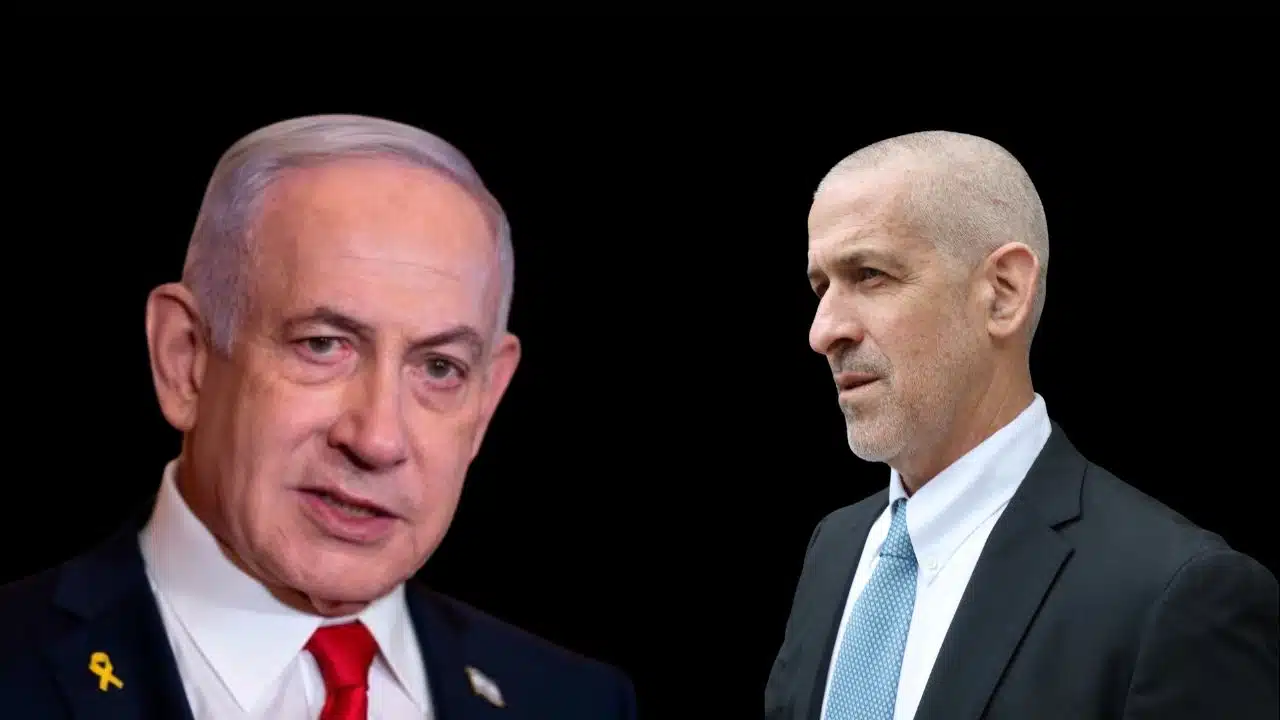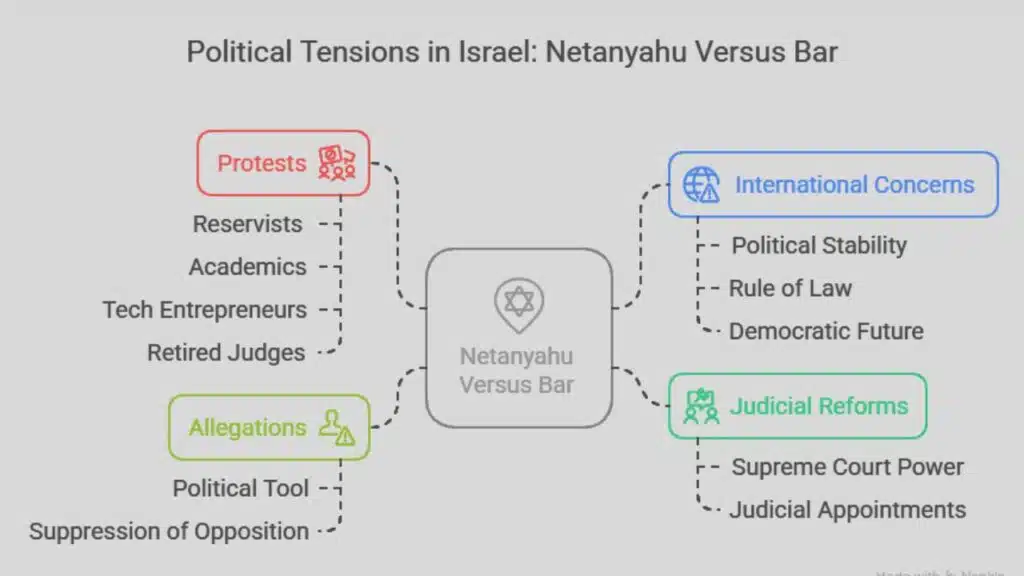Ronen Bar, the director of Israel’s domestic intelligence agency Shin Bet (Shabak), has officially announced his resignation, marking a significant shake-up in Israel’s security establishment. Bar stated that he would leave office on June 15, 2025, during a solemn memorial ceremony for fallen Shin Bet officers.
In his emotional speech, Bar reflected on the agency’s failure to prevent the October 7, 2023 Hamas-led assault — a devastating event that plunged Israel into its ongoing conflict with Gaza. Acknowledging the tragedy, Bar said every public servant must “bow their heads humbly” before the victims and act with integrity and accountability.
His resignation follows a fierce and very public confrontation with Prime Minister Benjamin Netanyahu, revealing deep political and societal fractures within Israel.
A Tense Power Struggle: Affidavits, Allegations, and Accusations
The confrontation between Bar and Netanyahu escalated into a constitutional crisis when both figures submitted opposing affidavits to the Israeli Supreme Court.
According to Bar’s affidavit, Netanyahu pressured Shin Bet to spy on Israeli citizens who were protesting against the government’s controversial judicial reforms throughout 2023. These mass protests — involving hundreds of thousands of Israelis — were seen as one of the largest internal uprisings against government policy in Israel’s history.
Bar claimed that Netanyahu demanded “excessive personal loyalty” from him and suggested that, should a constitutional crisis arise, Bar was expected to follow the prime minister’s orders over the law and courts. He revealed that Netanyahu pressured him to surveil protest leaders, activists, and financial backers — an action that would have been a serious abuse of Shin Bet’s mandate.
In response, Netanyahu submitted his own affidavit, denying the allegations. He called Bar’s accusations “an absolute lie”, insisting he never ordered the Shin Bet to act against peaceful protestors. Netanyahu instead turned the focus back on Bar’s leadership failures, blaming him for “massive and direct responsibility” for the October 7 security breach. He claimed Bar had lost the trust of the entire Israeli government and that professional incompetence — not political pressure — was behind his decision to dismiss Bar.
Public Reactions: Alarm Over Political Interference
The unprecedented public fallout between Israel’s prime minister and the head of Shin Bet sparked widespread alarm.
Former intelligence officials, senior security analysts, and legal scholars voiced concerns that political meddling in Israel’s intelligence services could erode public trust and weaken democratic institutions. As reported by The Times of Israel and Haaretz, multiple former Shin Bet leaders expressed that even the appearance of political misuse of security agencies could have long-term consequences for Israeli democracy.
Civil rights groups, including the Association for Civil Rights in Israel (ACRI), warned that using the Shin Bet to monitor peaceful protestors would set a dangerous precedent, undermining the agency’s critical focus on national threats rather than political dissent.
Senior military commentators also noted the timing: with Israel still engaged in a grinding war against Hamas in Gaza, any weakening of Shin Bet’s leadership or morale could carry serious security risks.
Netanyahu Versus Bar: A Broader Political Battle
The dispute between Netanyahu and Bar cannot be viewed in isolation. It reflects deeper tensions that have been building for years within Israeli politics.
Since Netanyahu’s government returned to power in late 2022, it has pursued sweeping judicial reforms aiming to limit the power of Israel’s Supreme Court and increase political control over judicial appointments. This move triggered unprecedented protests, drawing broad participation from Israeli society, including reservists in elite military units, academics, tech entrepreneurs, and retired judges.
Bar’s allegations suggested that Netanyahu was willing to use Israel’s security services as a political tool to suppress opposition — a charge that Netanyahu and his supporters vehemently deny.
Observers, including writers at The Jerusalem Post and BBC News, have noted that Netanyahu is facing growing pressure from both domestic critics and international allies who are concerned about Israel’s political stability, rule of law, and democratic future.
Gaza War Adds Another Layer of Complexity
Adding to the turmoil is the ongoing war in Gaza.
Following the October 7 attacks, Netanyahu vowed to defeat Hamas completely, launching extensive military operations in Gaza that have led to heavy casualties on both sides. According to the United Nations and various humanitarian agencies, the conflict has created a severe humanitarian crisis in Gaza, with over 30,000 reported deaths and mass displacement.
Inside Israel, public opinion has shifted: while many still support military action, there is an increasingly vocal segment demanding the immediate return of Israeli hostages still held by Hamas. Critics argue that prioritizing the hostages’ release should take precedence over a prolonged military campaign, even if it requires difficult compromises.
This growing divide has created additional political pressure on Netanyahu’s government, further complicating its internal battles.
Bar’s Future Role and the Court’s Next Steps
Although he has resigned, Ronen Bar has made it clear that he will continue to cooperate with Israel’s judicial authorities.
In his statement, Bar emphasized that the Supreme Court case is “not about personal grievances”, but about ensuring that future Shin Bet chiefs maintain their independence, free from political coercion. He said he is ready to testify or provide evidence if called upon, suggesting that his departure will not end the legal and political scrutiny surrounding Netanyahu’s actions.
The Israeli Supreme Court now faces the difficult task of weighing the conflicting accounts provided by Netanyahu and Bar — and deciding whether broader reforms or accountability measures are necessary.
An Uncertain Path Forward for Israel’s Security and Politics
Ronen Bar’s resignation and the surrounding controversy mark a pivotal moment for Israel.
The scandal has:
- Shaken public trust in the country’s key institutions.
- Highlighted the risks of political interference in intelligence and security matters.
- Underscored the deepening societal fractures that continue to widen under Netanyahu’s leadership.
As the search for a new Shin Bet head begins, Israeli society faces tough questions about the balance between security, democracy, and political power in a time of war and internal unrest.
Political analysts suggest that Netanyahu’s next steps — including his choice of Shin Bet successor and the handling of Supreme Court challenges — could have long-lasting implications for the future of Israel’s democracy.
For now, the resignation of Ronen Bar stands as a stark reminder of the growing cost of political polarization in a country already grappling with external threats and internal divisions.
The Information is Collected from BBC and Yahoo.







































